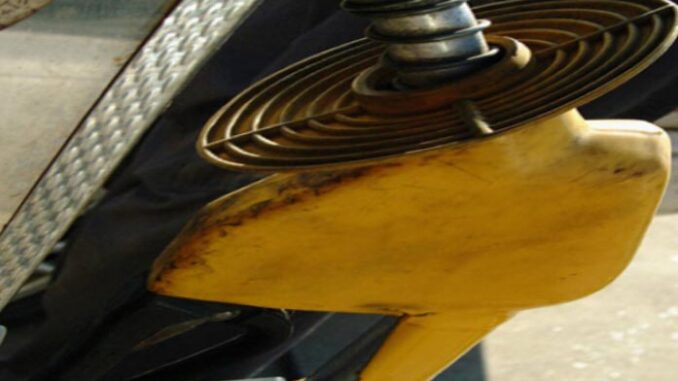
On Tuesday, the Pima County Board of Supervisors approved a contract with lobbyist Michael Racy to promote legislation, introduced this session by Arizona State Senator Steve Farley, to amend section 28 5606, of the Arizona Revised Statutes to allow counties to impose a gas tax.
By contract, Racy’s company will receive $160,000 in taxpayer monies for State-level lobbying and another $150,000.00 for nation-level lobbying.
While the vast majority of southern Arizona residents support reducing a reliance on fossil fuels, and recognize that the roads are crumbling, they live in the 8th poorest are in the country and an increase in fuel will make driving to their call center, and service industry jobs a little more difficult. Currently, the lower fuel prices are the one thing keeping the hard-strapped residents of Santa Cruz, who are facing a 30 percent unemployment rate, and Pima counties afloat.
Farley, who fought for the financially failing “modern streetcar” for downtown Tucson, introduced SB1012 in December 2015 for the 2016 session, after his previous bill, SB11060 died in committee during the 2015 session. Currently, according to the Arizona Legislature’s website, the bill has no cosponsors.
It is unlikely the bill will have any success this year, but at $150,000 for lobbying efforts, it stands a chance.
Residents of Pima and Santa Cruz counties won’t stand a chance for survival if the bill does goes through. The rest of Arizona has not recovered from the Great Recession as has many other areas in the country, and the residents in southern Arizona have been hardest hit.
In March 2014, Pima County Supervisor Ally Miller, in an op-ed, advised residents that a gas tax levied “affect the poorest among us – those who are struggling and cutting their budgets just to put food on the table.”
Pima County needs to prioritize spending vs. passing a new regressive gas tax
Miller wrote that residents pay a Vehicle License Tax (VLT) and gas taxes “which should be used for maintaining your roads.” However, Pima County administrator Chuck Huckelberry, with the support of the majority of the Board, has “ballooned” County government from $640 million to $1.3 billion, while according to Miller, “the population increased just 25% and government grew by 100%.”
Miller claimed at the time, “We don’t have an income problem in Pima County; we have a spending problem.” She argued that the County does not “not need another tax increase; what we do need is to prioritize spending on essential core services.”
Miller noted that despite the fact that Pima County voters approved a “bond package which involved a $76 million budget for a new court house,” the County overspent and the cost grew “$156 million consists of $22.4 million from the General Fund that should have been used for road repairs and $58 million in non-voter approved debt.”
In November 2013, Mike Hellon, while running for a supervisor spot, claimed that Huckelberry played games with Highway User Revenue Fund monies. Hellon stated, “For three years, Pima County spent zero on scheduled roadway maintenance. Zero. Total neglect by the Board of Supervisors and the County Manager.” Huckelberry and the majority of the Pima County Board of Supervisors have complained that Arizona’s Legislature has “swept” HURF funds away from struggling counties leaving them with little to maintain their roads, when in fact, by 2013, only 4 percent of those funds were actually been swept away by the legislature since 1997.
HURF funds are gas tax dollars set aside for road repair and maintenance across Arizona. While those funds are shrinking due to better fuel economy in newer vehicles and the rising popularity of electric vehicles, over $841 million in HURF revenue has been received by Pima County since 1994. Of this, only $34 million was swept by the state legislature over the last 12 years.
As the ADI reported in 2014, in 1997, Pima County voters approved $350 million in HURF bonds, not knowing this meant no road repairs since the bonds were to be paid back with HURF funds. Those bonds were supposed to be used for new road capacity. What the voters didn’t understand when they voted was they approved using HURF, or road repair monies, to pay their bond debt.
The voters rejected a bond proposal this year in Pima County. It is unlikely they would support an increase in fuel costs.
